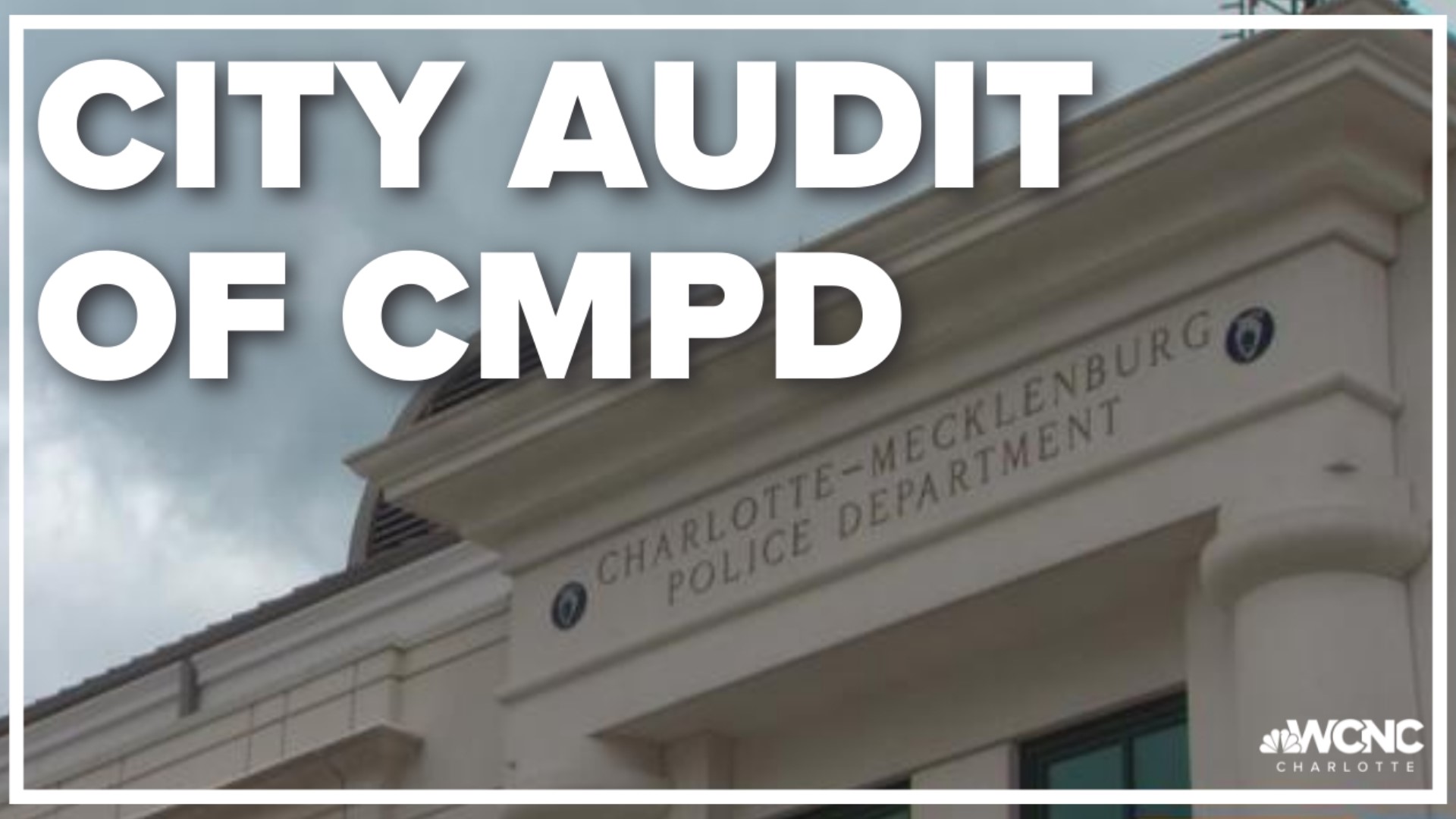CHARLOTTE, N.C. — Eight months after WCNC Charlotte raised questions about what police body cameras do and don't record, a newly completed city of Charlotte audit found the Charlotte-Mecklenburg Police Department has room to improve when it comes to transparency and accountability.
The audit, released this week, concluded the program has proper oversight, but auditors flagged concerns about the department's internal review process.
CMPD supervisors randomly watch videos from every officer each month and take action when they find problems. However, auditors raised questions about 24 supervisors who watched 2,200 videos yet did not document a single concern. Generally, auditors said concerns are noted 3% of the time.
"Given the scope of what supervisors look for during their monthly reviews, it is unlikely that the 2,216 videos viewed yielded no concerns," auditors wrote. "Currently, CMPD is not analyzing supervisors' BWC review performance."
In response, CMPD promised more supervisor oversight.
Long before Chief Johnny Jennings requested the audit, CMPD's Professional Standards Division, with the help of supervisors, developed what they called an "aggressive" internal review process with the ultimate goal of correcting behavior.
"Overall, I think we're doing a great job," Capt. Michael Harris told WCNC Charlotte in August. "When you counsel somebody, they usually don't do it again."
A WCNC Charlotte review of CMPD body camera records previously identified a variety of common problems flagged during the internal review process, including hundreds of instances of officers failing to either keep their cameras on or hit record when dispatched or interacting with the public. At the time, Harris said that area needed improvement.
"That's where transparency lies," he said. "That's one of the biggest issues for me ... If we get that under control, which I think we are, I think we have a better chance of recording more encounters with the community."
The city's audit found instances where, during some of the most serious calls, there were no proof cameras were activated, likely most of the time for legitimate reasons. However, auditors noted it is unclear what percentage of those calls should have video available.
"In an effort to constantly improve the service we provide, I requested for the city of Charlotte Internal Audit Department to conduct an audit to determine if the CMPD's body-worn camera program is meeting its goals of professional accountability and transparency," Jennings told WCNC Charlotte in a statement. "Having an external audit allowed for a more objective evaluation of our program while also examining potential opportunities for improvement. I am proud to see that the audit found that the CMPD policy on body-worn camera footage was comprehensive and within best practices and that the auditor concurred that the controls we have in place are well designed. My leadership team and I will be evaluating the recommendations laid out in the audit to determine how we can continue to improve the program to make sure that the goals of professional accountability and transparency continue to be supported."
The city has spent millions of dollars in recent years on body cameras. Current state law ensures the public rarely gets to see footage from those cameras. The auditors also couldn't review videos.
While auditors found CMPD's policy is "comprehensive and follows best practices," and that "key controls exist to mitigate significant risks," they concluded periodic risk assessments are needed, existing monitoring controls need improvement, CMPD needs to consistently enforce the BWC policy and opportunities exist to improve transparency and accountability.
"As the BWC program has grown, the use of in-car dash cameras (dashcams) has slowly been phased out," they wrote. "The equipment was obsolete, new equipment is expensive, and other options are becoming available. The public trust would be enhanced if the BWC program has a complementary technology that would allow recordings from various viewpoints. As technology evolves, CMPD is monitoring options to further promote transparency and accountability."
The audit comes just a month after CMPD updated its body camera policy to make sure they're recording more often. The policy now lays out specifics about when officers need to turn on their cameras and when they can turn them off.
Contact Nate Morabito at nmorabito@wcnc.com and follow him on Facebook, Twitter and Instagram.

